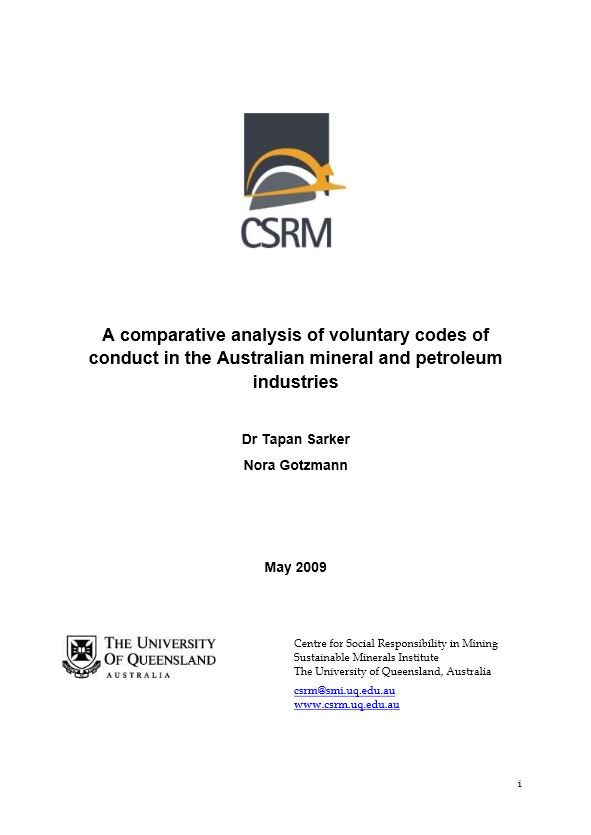A comparative analysis of voluntary codes of conduct in the Australian mineral and petroleum industries
The design and development of appropriate regulatory mechanisms have attracted renewed attention in recent years. In particular, a shift towards voluntary self-regulatory mechanisms has been witnessed within many industries, such as the Australian mining and petroleum industries which have developed voluntary codes of conduct. This paper analyses the development of different regulatory forms and provides a brief comparative analysis of the two main voluntary codes of conduct used by the Australian mining and petroleum industries. In particular, the study focuses on the integration of social sustainability elements within these frameworks that help contribute to solving issues such as coverage of human rights, approaches to employee and community relations, systems of stakeholder engagement, community consultation and public reporting. The study concludes that stakeholders have an important role to play in driving the introduction of voluntary regulation. This phenomenon can be traced back to how a company's need to maintain its legitimacy, or social licence to operate, often motivates it to go beyond compliance. By providing a fuller understanding of factors driving the evolution of different regulatory mechanisms, this study has important implications for policy makers and practitioners interested in developing effective regulation.
Publisher: Asian Journal of Business Ethics

